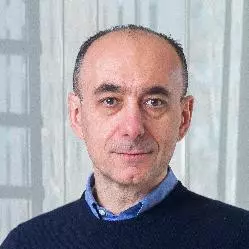
Jean-Laurent Casanova
Jean-Laurent Casanova, MD, PhD, is a Professor and Head of Laboratory at the Rockefeller University, Senior Attending Physician at the Rockefeller University Hospital, and Investigator of the Howard Hughes Medical Institute. He is a pediatrician and immunologist by training, and in practice, has become a human geneticist investigating infectious diseases.
He discovered that life-threatening infectious diseases of childhood may be caused by single-gene inborn errors of immunity. He revealed single-gene mutations that create ‘holes’ in the immune system of children who are susceptible to specific infectious diseases, yet remain normally resistant to other infectious agents.
Dr. Casanova’s research started with a simple question: what is it that makes some children develop a severe clinical illness in the course of infection while others exposed to the same microbe remain unharmed? In groundbreaking research, he discovered that single-gene lesions in children can confer selective vulnerability to certain infectious illnesses. Until these discoveries, single-gene lesions were only thought to underlie rare Mendelian traits, predisposing affected children to multiple infectious diseases.
Specifically, Dr. Casanova’s team has identified single-gene mutations underlying mycobacterial diseases (mutations in
IFNGR1, IFNGR2, STAT1, IL12B, IL12RB1, NEMO, IRF8, CYBB, ISG15), invasive pneumococcal disease (NEMO, IKBA, IRAK4, MYD88, HOIL1, RPSA),
herpes simplex encephalitis (UNC93B1, TLR3, TRAF3, TRIF, TBK1), chronic mucocutaneous candidiasis (IL17F, IL17RA, IL17RC, STAT1, ACT1), dermatophytic disease (CARD9), Kaposi sarcoma (OX40), and severe flu (IRF7).
These studies have important clinical implications, as they provide means for genetic counseling and a rationale to develop new therapeutic approaches based on an understanding of the host component of infectious diseases. These studies also have important biological implications, as they define the function of host defense genes
in natura, i.e. in the setting of a natural ecosystem governed by natural selection.
Dr. Casanova was an international research scholar with the Howard Hughes Medical Institute from 2005 to 2008 and was elected to the European Molecular Biology Organization in 2005. Dr. Casanova was the recipient of the Professor Lucien Dautrebande Pathophysiology Foundation Prize in 2004, the Richard Lounsbery Award in 2008, the E. Mead Johnson Award from the Society for Pediatric Research in 2010, the InBev Baillet-Latour Health Prize in 2011, the Ilse and Helmut Wachter Foundation Award and the Milstein Award in 2012, the Robert Koch Prize and the Sanofi – Institut Pasteur Award in 2014, and elected as a Foreign Associate of the National Academy of Sciences of the USA in 2015.
No items yet!
No items yet!
